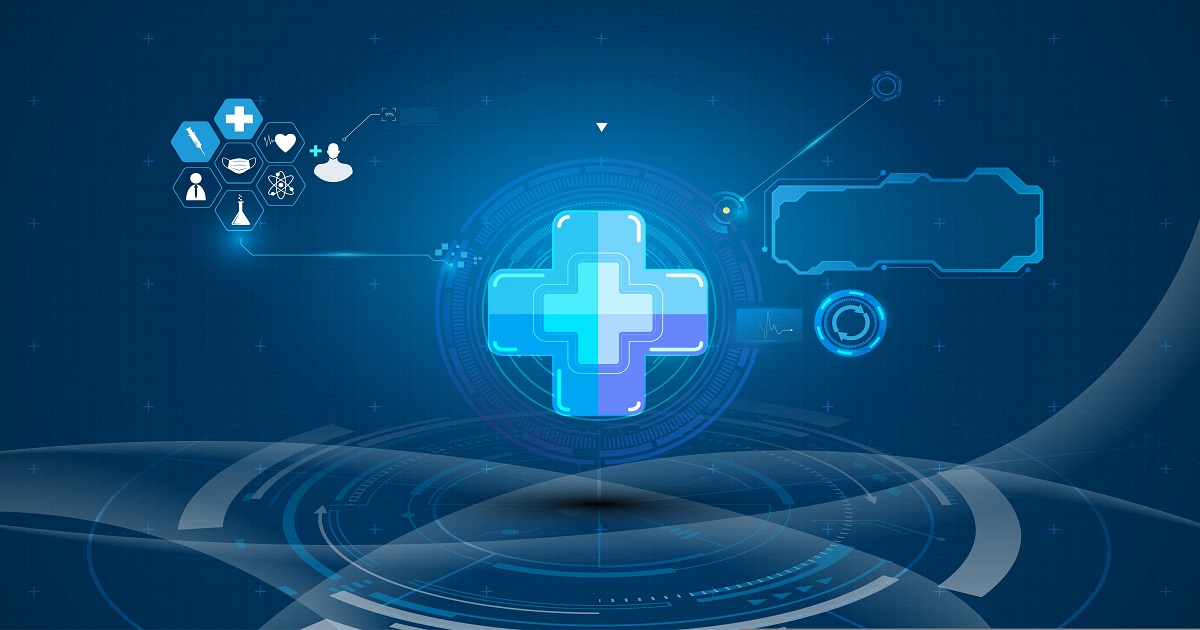
Health Technology, Digital Healthcare
Article | August 16, 2023
The healthcare industry has become a prime target for cybercriminals in recent times.
According to The State of Ransomware in Healthcare 2023 report from Sophos, six in 10 healthcare organizations have been hit by ransomware in the last 12 months, up from 34% in 2021.
Among this uptick have been several headline-grabbing attacks. For example, Shields Health Care Group became the subject of the single-largest breach affecting any organization globally in April 2023, when 2.3 million patients of the Massachusetts-based medical services provider had their personal data stolen after a cybercriminal gained unauthorized access to the organization’s systems.
Meanwhile, in the UK, a ransomware attack on the University of Manchester occurred in June, affecting an NHS patient data set holding information on 1.1 million patients across 200 hospitals.
Critically, the wealth of data housed in healthcare networks, and the potential impact of data unavailability in healthcare, make the industry both attractive and lucrative to threat actors.
It’s no coincidence that the Sophos report shows the rate of encryption in the healthcare sector is at its highest level in recent years. Of those healthcare organizations which suffered a ransomware attack in 2023, 73% had their data encrypted – up from 61% in 2022. When cybercriminals can successfully take down hospital systems and/or encrypt patient data so it can’t be used, they can blackmail health service providers, demanding significant sums before reinstating systems and/or data availability.
Considering healthcare's critical role as the highest-stake industry in our society, where people's lives depend on its success, the likelihood of attackers achieving their goals is greater than in other sectors, as confirmed by the Sophos report. Indeed, of the 73% of healthcare organizations that had their data encrypted, 42% reported that they paid the requested ransom to recover data.
DSPT and the compliance burden
Without question, the security-related challenges in healthcare are mounting. Right now, industry organizations are operating against a backdrop of unprecedented operational and workforce pressures, spiralling demand for care and industrial action.
Moreover, there is a growing regulatory burden, with organizations continually asked to comply with evolving cybersecurity rules, battling with multiple compliance mandates at any given time.
Take the NHS as an example. According to the 2023 NHS Providers’ Regulation Survey, just over half (52%) of respondents said the regulatory burden on their trust had increased. And this is expected to ramp up further in the future, with the UK government setting out a new 2030 strategy aimed at bolstering cyber resilience in healthcare.
Among the compliance burdens that the NHS faces is the challenge of meeting the requirements of the newly updated Data Security and Protection Toolkit (DSPT).
Mandated to minimize cyber risks and enable healthcare providers to maintain a robust information security posture, the DSPT is not a simple checklist of security controls, but a comprehensive toolkit to evaluate current security maturity and establish a risk management programme.
Indeed, in more recent times, DSPT has moved away from being a guide for achieving certain levels of assurance, and toward a mandatory evidence-based system which demands NHS organizations align with 10 precise National Data Guardian (NDG) standards: 1. The organization assures good management and maintenance of identity and access control for its networks and information systems. 2. The organization closely manages privileged user access to networks and information systems supporting essential services. 3. The organization ensures passwords are suitable for the information being protected. 4. Process reviews are held at least once a year where data security is put at risk and following security incidents. 5. Action is taken to address problems as a result of feedback at meetings. 6. All user devices are subject to anti-virus protections, while email services benefit from spam filtering and protection deployed at the corporate gateway. 7. Action is taken on known vulnerabilities based on advice from NHS Digital, and lessons are learned from previous incidents and near misses. 8. The organization has a defined, planned and communicated response to data security incidents impacting sensitive information or key operational services. 9. The organization has demonstrable confidence in the effectiveness of the security of technology, people, and processes relevant to essential services. 10. The organization securely configures the network and information systems that support the delivery of essential services.
Reducing Compliance Challenges with the Right Solutions
Taken individually, these standards may not seem too strenuous to adhere to. However, to be compliant with DSPT, all 10 items need to be completed and deemed ‘satisfactory’.
To tick all 10 key boxes in the most effective and efficient manner simultaneously, organizations should consider their strategy carefully. This could involve embracing supportive tools to accelerate and enhance their compliance journey.
Boiled down, DSPT demands several key things, including unincumbered visibility of the entire ecosystem, as well as the ability to demonstrate secure access, logs and storage, and essential auditing processes to maintain data security.
Achieving these things might appear complicated, even daunting. However, there are solutions known as Security Information and Event Management (SIEM) systems on the market that can make achieving these capabilities, and in turn DSPT compliance, easy.
Here, we outline some of the key features to look out for to meet compliance: • Log retention: A modern SIEM should be able to provide a centralized log storage and big data platform that scales to any organization’s size. Platforms should be able to provide role-based access to log data, including ‘data privacy’ functionality that can mask sensitive data until approved. Log data should not be modified or removed by users once ingested into the platform, while all data held should also be indexed and fully searchable. • Identifying and disabling unnecessary accounts: A good SIEM will also provide account auditing facilities for Active Directory that allow administrators to quickly identify dormant accounts. They should also be able to remove privileged user access when no longer required or appropriate. More sophisticated platforms will be able to do this in an automated manner. • Easy identification of issues: Clear and easily readable dashboards, alerts and reports for user logging activity should be provided, including failed login, apparent brute-force attempts, and bad password management practices. Further, those using machine learning will be able to identify unusual behavior patterns based on a baseline of activities of users and their peer group. • Integrate with third-party threat feeds: It will also be able to integrate with a wide variety of third-party threat feeds that provide information about specific known threat payloads/hashes and destination domains/addresses.
Meeting the mandate
Of course, having the right features in place is only part of the puzzle. For organizations to be truly successful in embracing tools that enable them to meet DSPT compliance more effectively, they should work to ensure that solutions providers offer them ongoing support – both in terms of ease of deployment and to ensure that they are using key systems in an optimal manner.
Scalability is another important aspect to consider.
Systems should be able to scale and continue to support the organization as data volumes increase and become more complex over time.
In respect of scalability, organizations should take time to think about pricing models, ensuring that these are based on the number of devices (nodes). In doing so, it will become easier to accurately budget future costs, as well as provide greater budgeting certainty over the short, medium and longer term.
A converged SIEM allows organizations to prioritize the big picture over individual tools, enabling them to develop a seamless and easy to use security operations setup. Not only does this approach boost cost transparency and eliminate potential complexities with managing a variety of siloed products – equally, it reduces the burdens on security teams, eliminating complexities over system integration and enhancing performance.
A converged SIEM combines key technologies easily to offer improved security outcomes. In doing so, organizations can easily home in on specific standards and adopt security best practices while reducing the burden on security teams tasked with meeting DSPT compliance.
Read More

Health Technology
Article | September 12, 2023
Electronic medical records (EMR) conferences are vital for professionals who wish to stay updated on latest healthcare innovations. Join industry experts to tackle challenges and seize opportunities.
Electronic medical records (EMR) are digital versions of patients’ medical information. These can be managed, accessed, and shared by authorized healthcare providers within a single healthcare organization. Staying informed with the latest updates on EMR conferences is crucial for healthcare providers, administrators, and IT professionals responsible for implementing and maintaining these systems. Attending these conferences offers the opportunity to keep up with the latest trends and technologies, network with experts, earn continuing education credits, and enhance professional development in the rapidly-evolving healthcare landscape.
Explore the EMR conference schedule and highlights for the healthcare industry, featuring the best EMR conferences for medical professionals with a focus on digital health, electronic patient records, and other notable advancements. Attend these top events to stay informed and connect with industry experts:
1.MedInfo 2023
July 8 to 12 | Sydney
MedInfo, a health informatics event with the theme ‘The Future is Accessible’, will take place at the International Convention Centre (ICC). The conference aims to explore digital healthcare beyond borders and will feature 700 keynote speakers addressing over 3,000 delegates from more than 50 countries. The event will cover a diverse range of topics, with particular emphasis on nursing and digital health.
2.e-Health 2023 Conference and Tradeshow
May 28 to 30 | Toronto
e-Health, a premier event for Canadian digital health professionals, will be held at Beanfield Centre. Committed to making a difference in health and healthcare delivery, this annual conference & tradeshow has remained a vital epicenter of digital health discussion and debate since 2000, attracting a diverse line-up of in-demand speakers, expert panelists, presenters, and leading-edge exhibitors. Attendees can expect a wonderful platform to learn, connect, and engage with peers both nationally and globally, along with networking and knowledge-sharing opportunities.
3. Digital Healthcare World Congress 2023
May 23-24 | London
Digital Health World Congress 2023, slated to take place at Kensington Conference & Event Centre, will feature discussions on various medical and mobile technologies such as e-health, m-health, telehealth, telemedicine, genomics, biotech, life sciences, healthtech, genetics, pharma, and healthcare IT. This event will be crucial for healthcare professionals looking to gain insights into the latest developments in electronic medical records.
4. 11th International Conference on Internal Medicine & Patient Care
July 20-21 | Florida
The conference aims to explore the latest developments and advancements in the field of internal medicine through the theme of ‘Current Research and Advances in Internal Medicine’. It will cover topics such as dermatology, cosmeceuticals, and laser treatments, with a significant scientific session on ‘Electronic Medical Record and Disease Management’. Attendees can take advantage of opportunities to present their research, learn about career development, and gain insights into the latest tools & technologies. The conference promotes collaboration among young researchers and offers a chance to interact with peers and established leaders globally.
5. openEHR Conference
June 6 | Barcelona
openEHR aims to bring together healthcare professionals, medical informatics experts, care providers, researchers, authorities, regulators, and service providers. The event's theme 'No time to waste: building the lifelong, patient-centric EHR,' emphasizes raising awareness about the current state of semantic interoperability in healthcare. The objective is to enable different healthcare systems and applications to share and utilize patient data seamlessly and accurately, irrespective of the technology used, to create patient-centric electronic records that can be accessed and used throughout a patient's lifetime.
6. Oracle Health Conference
September 18-20 | Las Vegas
Attend the Oracle Health Conference to discover how Oracle Health is revolutionizing healthcare technology. Formerly known as the Oracle Cerner Health Conference, this event features innovative product demos, education sessions on industry challenges, and networking opportunities with like-minded peers. Gain insights into how technology can improve patient outcomes, enhance clinical efficiency, and drive innovation in healthcare organizations.
7. Electronic Medical Records Boot Camp
August 21-22 | Virtual
The upcoming Electronic Medical Records Boot Camp invites attendees to gain valuable insights into biostatistical methods for analyzing EMR data. This intensive two-day program features seminars and hands-on analytical sessions, providing attendees with an overview of electronic health data opportunities, statistical challenges, and the latest techniques related to electronic medical records. The program aims to help attendees leverage electronic medical records for better healthcare outcomes.
8. The Healthcare Innovation Congress
June 20 – 22, 2023 | Washington, DC
The Healthcare Innovation Congress (thINc360), formerly known as The World Health Congress, aims to bring together executives from a wide range of healthcare sectors. Over the course of three days, the conference will offer tailored educational experiences specifically designed for executives representing healthcare professionals, health plans, and hospitals.
9. Digital Health Transformation Summit 2023
May 22-24 | Chicago
This event aims to highlight how innovation is driving change across the healthcare industry, leading to gains in quality, affordability, accessibility, and sustainability. The panel of Modern Healthcare's Top 25 Innovators will discuss the latest innovative projects, products, and developments in healthcare, including the use of AI to leverage the abundance of patient data from EHRs and digital tools for improved diagnoses, treatments, and disease prevention.
10. World Medical Innovation Forum
June 12-14 | Boston
World Medical Innovation Forum (WMIF) is a global event that brings together leaders in healthcare investment, technology, manufacturing, and regulation at Westin Boston Seaport District. The forum, presented by Mass General Brigham and Bank of America, aims to advance patient-benefitting technologies by exploring the promise of new patient care and addressing the challenges to their development and investment. The ultimate goal is to find solutions to medical, operational, and economic challenges to benefit patients, providers, and healthcare organizations at the earliest feasible time.
11. Bits & Pretzels Healthtech
June 20-21 |Munich
Conference will focus on technology-driven healthcare innovation and its potential to enhance patient outcomes. The conference will explore the patient journey from prevention to aftercare, with a focus on technology's role in driving innovation. Attendees will examine how new technologies such as AI, bio 2.0, and IoT ingestible can improve healthcare delivery.
12. IHI Patient Safety Congress
May 22-24 | Maryland
Organized by the Institute for Healthcare Improvement (IHI), the event, which will take place at National Harbor, aims to bring individuals together who are passionate about ensuring safe and equitable care for patients in all settings, including hospitals, outpatient facilities, and homes. It will feature engaging speakers who will share their vision for smarter, safer care, and attendees will have access to practical workshops, which will provide real-world insights that can be implemented within their organizations. This event is a must-attend for anyone interested in shaping the future of patient safety.
13. Intelligent Health Conference 2023
June 14 | Pilestredet
The Intelligent Health Conference 2023 is an event organized by Intelligent Health Initiative at OsloMet – Oslo Metropolitan University to provide an update on the latest developments & research in the field of digital health. The event will bring together experts & researchers in the field to discuss the use of digital technologies such as AI and wearable devices for improved health services. The conference will focus on various technologies that are becoming an integrated part of daily life, including mobile health and applications, electronic medical records, and telehealth as well as telemedicine.
14. HealthTech Innovation Days
October 24-25 | Paris October 27 | Virtual
The fifth edition of HealthTech Innovation Days (HTID) event, organized by the non-profit organization HealthTech Care and initiated by France Biotech, aims to facilitate faster delivery of innovative products to patients by providing a platform for European life sciences stakeholders. The HTID event provides various activities to facilitate the progress of innovation, such as the chance to engage with knowledgeable professionals, participate in panel discussions led by experts from around the world, and obtain valuable insights into critical subjects.
15. Digital Health Innovation Summit
June 6-7, 2023 | California
The 23rd rebranded edition of Digital Health Innovation Summit, organized by World BI, will take place at Hyatt Regency San Francisco Embarcadero Waterfront Hotel. The event aims to provide a unique opportunity for professionals in the pharma, healthcare, and medtech industries to connect with thought leaders, explore the latest trends in digital health technologies & advancements in electronic medical records, and gain valuable insights to enhance patient care. With the participation of clinicians, scientists, entrepreneurs, biomedical engineers, patient advocates, and top technology providers, this summit will serve as a crucial gathering for professionals driving innovation in healthcare.
Wrapping Up
Participating in electronic medical records conferences can facilitate professional development, accrue continuing education credits, and help individuals stay abreast of the rapidly-evolving healthcare landscape. EMR conferences frequently offer focused conference tracks or sessions dedicated to various EMR-related topics such as implementation, data analytics, interoperability, privacy and security, and patient engagement. Participating in these specialized tracks can provide attendees with a more targeted and comprehensive learning experience, and can contribute significantly to improving the quality of healthcare delivery, enhancing patient outcomes, and driving innovation in the healthcare industry.
Read More

Healthtech Security
Article | August 31, 2023
Combating stress and anxiety can be a major challenge these days, but there are certain behaviors that contribute to those feelings, and you can take action right now to stop them and focus on your wellbeing. By taking a look at the way you react to others, how you practice self-care, and what kind of attitude you approach new tasks with, you can make some positive changes to your lifestyle that affect both your personal and professional lives.
Stop stressing over your current job
Almost everyone experiences job-related stress at some point in their lives, but when those feelings become overwhelming, it may be time to consider your options, according to Zenbusiness.com. Those in corporate positions and high-level management often cope with the most stress or anxiety due to the number of people they have working under them. If you find yourself bringing home feelings of irritability, or if you suffer from insomnia or a lack of focus during the day, take a look at open positions elsewhere and think about how much moving on could help you maintain a higher level of mental health. It can be scary to think about making such a major life change, but you’ll never know what possibilities lie out there if you don’t take a leap.
Stop competing with others
While some competition in the business world is a healthy motivator, other types can leave you feeling terrible about yourself. Rather than comparing your lifestyle or achievements to someone else’s, try to practice gratitude each day by using mindfulness techniques that allow you to focus on your own actions. Focus on your strengths and remind yourself that you’re doing the absolute best you can each day. Make it a point to congratulate others on their achievements, especially your coworkers, and do what you can to build others up. When it comes to social media, remember that the things we share only give a glimpse into the whole story, and that comparing your life to another’s can be detrimental to your mental wellbeing.
Stop ignoring your physical needs
While your mental wellbeing is obviously an important focus, it’s also crucial to think about how you can make sure your body is getting everything it needs. Working a corporate job often means sitting stationary at a desk for long hours, working through lunch hours, or working at home even after you’ve clocked out for the day. Allow yourself to rest by setting boundaries once you’re home, and give yourself the tools to get better sleep by creating an end-of-day routine that will help you relax and prepare to let the workday go. Eat plenty of lean protein and leafy greens to keep your energy up, and make it a point to get up and move around at work. You might also invest in a standing desk, as those come with multiple health advantages for individuals who spend much of the day sitting.
Stop dreading the new week
It can be helpful to set some boundaries where work is concerned, but it’s also important to get organized in order to banish that dread you feel on Monday morning. Facing a busy week can bring on stress and anxiety that leaves you feeling unprepared, but if you take the time to write out a to-do list on Friday, you can jump right in at the beginning of the week without feeling frazzled. It can also help to have something to look forward to, such as promising yourself a little treat once you get a certain amount of work done. Staying productive can be a big help, so if you have time left toward the end of the day and there’s a small task still to be done, don’t let your desire to leave early on a Friday afternoon take over. Finishing up can give you a sense of satisfaction and will keep you from feeling overwhelmed once the new week starts.
Stop saying yes to everything
Another behavior that leads to feeling overwhelmed is saying “yes” to anyone who asks for your time or energy. You may feel that doing so contributes to a helpful, team-oriented atmosphere at work, but it becomes a problem when you take on too much without focusing on your own needs at least part of the time. Learning how to diplomatically say no when you can’t take on any more responsibilities is a form of self-care that can banish stress and allow you to focus on your own needs without feeling guilty.
Letting go of stress, anxiety, and poor health habits can take some time, but by creating some new routines you can learn new habits that help you tackle anything life throws your way. Write down a strategy that encompasses your daily schedule, and get organized both at work and at home for maximum mental health benefits.
Read More

Article | April 6, 2021
Health technologies range from devices, systems, and procedures to vaccines and medications that help deliver high-quality care, reduce costs for hospitals and patients, and streamline operations. It can be any software or IT tool that improves administrative productivity, eases workflow, and enhances the quality of life.
New technology in healthcare includes supportive, educational, information, organizational, rehabilitative, therapeutic, preventive, and diagnostic solutions that improve patient access and healthcare provider capabilities. Virtual concierge, artificial intelligence, voice search, and virtual and augmented reality are promising emerging technologies for 2021.
Read More